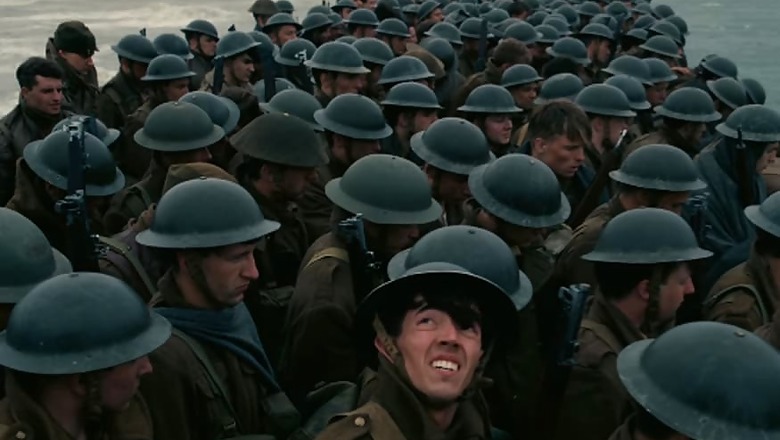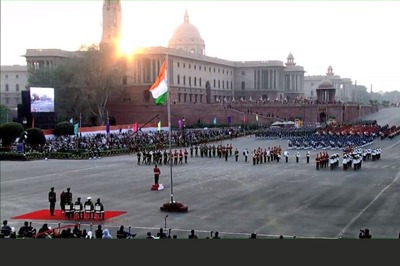
views
Director: Christopher Nolan
Cast: Tom Hardy, Fionn Whitehead, Mark Rylance, Harry Styles, Cillian Murphy, Kenneth Branagh
Watching Christopher Nolan’s Dunkirk is an experience that I’d imagine feels a lot like watching a ticking bomb from close quarters. This is a suspenseful film about a chapter in World War II history whose outcome is no secret. Yet Nolan, aided by Hans Zimmer’s thunderous score, conjures a relentless sense of dread and jeopardy that creeps into your bones.
This is the story of the evacuation of Allied troops – more than 300,000 soldiers, mostly British – who were stranded on the beaches of Dunkirk in northern France, desperate to make it across the English Channel, while being bombarded by the Nazis.
It’s a story that unfolds on land, on the sea, and in the air, and Nolan, who wrote the script himself, weaves the three narrative threads together seamlessly. On the ground, amidst the falling bombs and chaos, we follow a young, scared British soldier named Tommy (newcomer Fionn Whitehead) as he struggles to stay alive until he can be rescued. Up above, a handful of Royal Air Force Spitfire pilots, including Farrier (Tom Hardy), engage in dogfights against German bomber and fighter planes to keep the men on the ground safe. There’s also the track involving a civilian English sailor, Dawson (Mark Rylance), and his teenage son who head out in his small leisure yacht across the Channel to bring home as many of the stranded soldiers as they can.
One of the film’s big, bold moves is Nolan’s decision to intercut between these three related but distinct narratives, each of which has its own timeline and duration. The evacuation on the beach lasted over a week, the air battle a little over an hour, while Dawson’s crossing of the Channel takes all of one day. Merging the three tracks to appear as if all the action is taking place simultaneously helps escalate the sense of immediacy and urgency that the film relies on.
Unlike Steven Spielberg’s Saving Private Ryan (widely considered the best war film in recent times) which traded in stomach-turning images of disembodied corpses to convey the horrors of war, there is virtually no sight of blood in Dunkirk. Instead, this is a film that throws you front and centre into the action to experience the terror first-hand. The aerial scenes are especially hair-raising, and add to the overall effect of a race against time. The terrific camerawork, sound design, and propulsive score work together to deliver an intense immersive experience that is best enjoyed on an IMAX screen. There was a pin-drop silence throughout the screening I attended; you couldn’t even hear the sound of popcorn being munched. Fitting, perhaps, for a film with barely any dialogue.
This is that rare war film without the rousing speeches. There is no big victory in the end; this is a film about a desperate struggle for survival. The cast of mostly unknown actors does a good job of portraying the terror of the situation, while familiar faces – like One Direction’s Harry Styles in the role of a soldier trying to make his way back home, Cillian Murphy as a shell-shocked soldier rescued from a sinking ship, and Kenneth Branagh as an honourable naval commander – lend heft to the proceedings.
Dunkirk is robust filmmaking, and sits nicely with Nolan’s impressive body of work. It’s a riveting, overwhelming piece of cinema, and another reminder of how skilfully he marries affecting character drama with sheer spectacle. I’m going with four-and-a-half out of five. It’s one of the year’s best films.
Rating: 4.5 / 5
What's your reaction to Dunkirk?
Write your review of Dunkirk




















Comments
0 comment